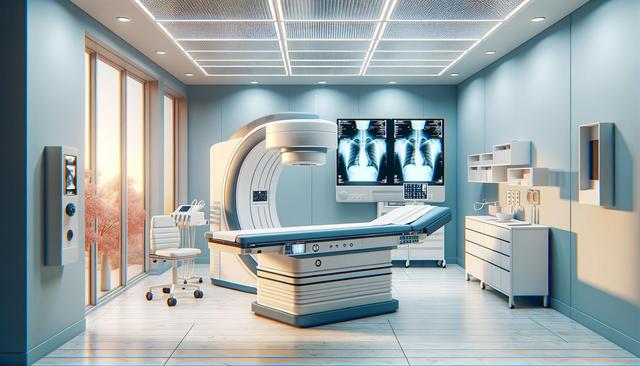Understanding the Role of X-ray Technicians
X-ray technicians, also known as radiologic technologists, are essential members of the medical imaging team. They operate specialized equipment to create images of the internal structures of the human body, which physicians use to diagnose and treat various conditions. Working closely with radiologists and other healthcare professionals, X-ray technicians ensure that imaging procedures are conducted safely, efficiently, and with the highest level of patient care. Their responsibilities often include preparing patients for procedures, positioning them correctly, and ensuring the quality of the resulting images.
These professionals typically work in a range of healthcare settings, including hospitals, outpatient clinics, and private facilities offering diagnostic imaging services. Given the importance of accuracy in imaging, X-ray technicians must have a thorough understanding of anatomy, patient care protocols, and radiation safety standards. Their work directly impacts the quality of patient diagnoses and treatment outcomes, making their role indispensable in clinical environments.
Educational Pathways and Certifications
To become an X-ray technician, aspiring individuals must complete a formal education program in radiologic technology. Many educational institutions now offer flexible learning options, such as a Radiology Online Degree, which allows students to study at their own pace while balancing other responsibilities. These programs cover essential topics such as radiographic procedures, medical terminology, anatomy, and patient care. In addition to theoretical coursework, students are also required to complete clinical training to gain hands-on experience in real-world settings.
Upon completing an accredited program, graduates typically need to pass a certification exam administered by a recognized certifying body. Certification validates their skills and knowledge, and is often a requirement for employment in diagnostic imaging facilities. Continuing education is also essential, as it helps technicians stay current with technological advancements and evolving best practices in the field.
Work Environments and Daily Responsibilities
Facilities offering diagnostic imaging services rely heavily on the expertise of X-ray technicians. These professionals may work in:
- Hospitals and emergency rooms
- Outpatient imaging centers
- Orthopedic and specialty clinics
- Mobile imaging units
Daily tasks include preparing patients for imaging procedures, ensuring radiation safety, maintaining equipment, and collaborating with other medical staff. X-ray technicians must also be skilled in patient communication, particularly when dealing with individuals who are in pain or anxious about the procedure. Their ability to create a calm and reassuring environment can significantly impact the patient experience and the quality of diagnostic results.
The Importance of Ongoing Education and Training
As technology continues to evolve, so too does the field of diagnostic imaging. For X-ray technicians, staying informed about the latest tools and techniques is vital. Many professionals choose to enroll in Radiology Online Courses to deepen their expertise or specialize in advanced imaging modalities such as CT (computed tomography) or MRI (magnetic resonance imaging). These courses often provide flexible learning schedules and are ideal for working professionals looking to expand their knowledge without interrupting their careers.
Furthermore, many employers value and sometimes require ongoing education as part of professional development. Whether through workshops, seminars, or online programs, continuous learning ensures that technicians remain competent and confident in their roles while supporting the delivery of high-quality care in diagnostic imaging facilities.
Career Outlook and Advancement Opportunities
The demand for skilled X-ray technicians is expected to grow in response to an aging population and an increased need for diagnostic services. Facilities offering diagnostic imaging services are continuously seeking qualified professionals who can operate high-tech equipment and provide excellent patient care. Graduates with an Online Radiology Degree are well-positioned to enter the workforce with a competitive edge.
Career advancement is also possible for those who pursue additional certifications or specializations. Opportunities may include roles such as MRI technologist, CT technologist, or even supervisory and educational positions. Additionally, some professionals choose to transition into related areas such as healthcare administration or medical sales, leveraging their background in radiologic technology to explore new career paths.
Conclusion: A Valuable Career in Diagnostic Imaging
For individuals interested in healthcare and technology, becoming an X-ray technician offers a rewarding and stable career path. Facilities offering diagnostic imaging services depend on these professionals to deliver accurate and high-quality imaging that supports effective patient care. With accessible educational options like a Radiology Online Degree and Radiology Online Courses, students can begin their journey in this dynamic field from virtually anywhere. Whether starting out or looking to advance, the role of the X-ray technician remains a vital part of modern medicine.




Leave a Reply